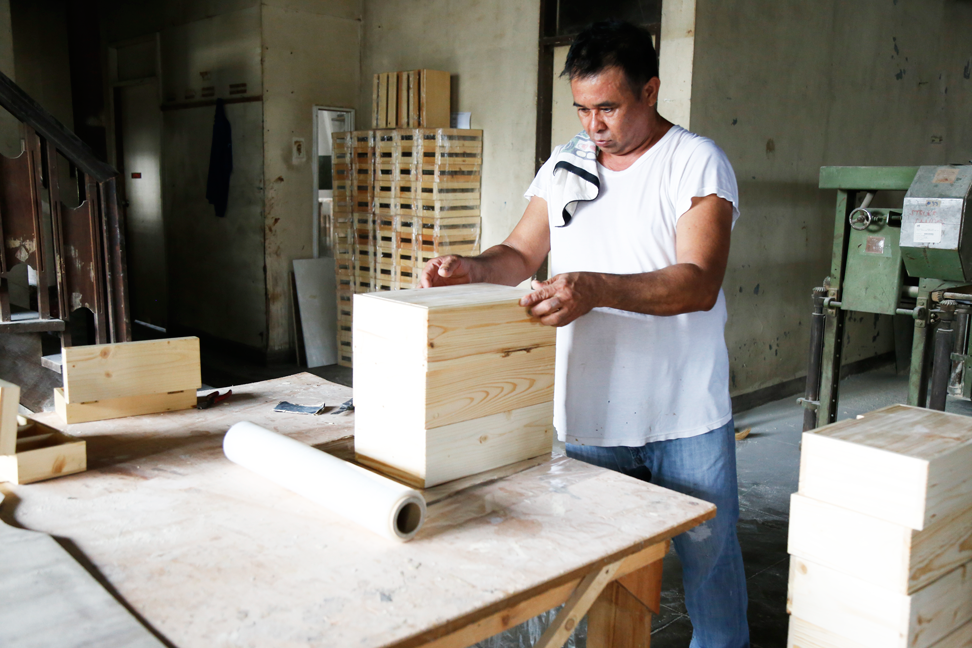BALAI HAMMERS A LIVING
Fueled by her passion for entrepreneurship and interest in sustainability, Rei Tugade set up a business that would bring not only profit but purpose as well.
The firm started from humble beginnings in 2016 when Rei, co-founder of BalaiKamay, noticed the high demand for unique hand-made souvenirs items during her brother’s wedding.
BalaiKamay actually started with just one product: wall clock. Since Rei had a fulltime work back then, she tested the waters by starting small.
Challenges at the start
There were missteps while putting up the business.
The biggest challenge to Rei was finding the displaced carpenters who to give them access to market and a platform to showcase and perfect their craft. When the business was starting, she did not have a single house carpenter working for BalaiKamay.
“The idea was to treat them [carpenters] as partners in this business. I searched all throughout Manila to find the best partners that we could work with,” she said.
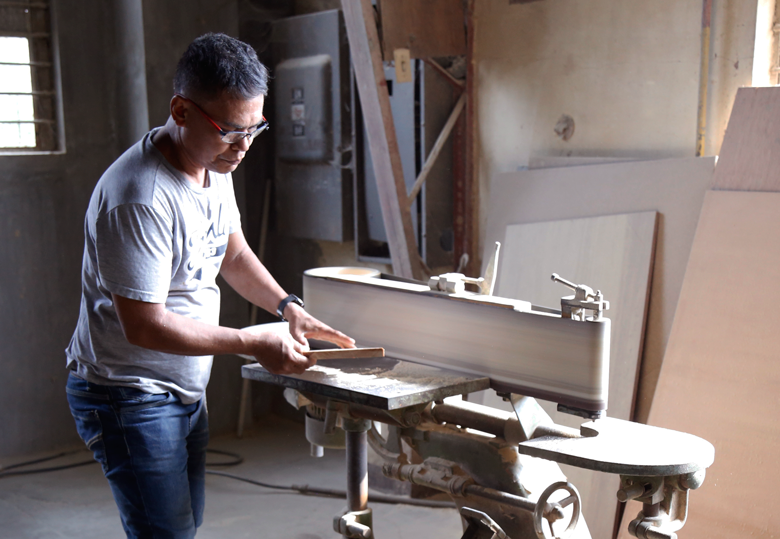
“Some of them were highly skilled, but did not have the heart for our products and our clients,” Rei shared. She ended up working with some irate carpenters who did not want to deliver the expected quality of work. She incurred losses, but was able to catch up after lessons learned during the start-up.
After selling the first few wall clocks produced, Rei and her team tried to add a few more items. Eventually, they shifted to making gift boxes, which now serves as one of their main products. From individual clients, BalaiKamay has presently several corporate clients who need souvenir items and customized boxes.
On the same year, Tugade went to the Department of Trade and Industry’s (DTI) Negosyo Center in Quezon City, and applied for a permit to set up her business.
Thereafter, she decided to quit her full-time corporate job to focus on the business.
Learning by doing
Rei finished a degree related to business management, but she felt this was not enough to make the venture successful.
Determined to continue in this line of business, Rei went the extra mile by taking a course on carpentry offered by the Technical Education and Skills Development Authority (TESDA). This helped her understand the process of crafts productions. This also gave her a chance to understand the perspective of the workers as well.
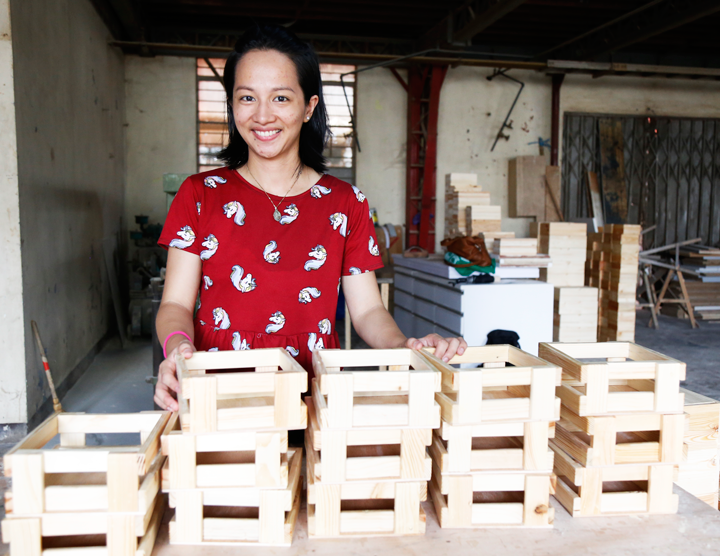
“I learned several technical skills, which were necessary in understanding how things work in this kind of business,” said Rei. Without these technical skills, it could have been more difficult for Rei to compute the actual costs and resources needed for each product item.
From zero workers, BalaiKamay now has four partner communities of carpenters. These four communities were met through the help of DTI, the University of the Philippines, Department of Social Welfare and Development, other MSME entities and by designers she met at the start of her business.
Aside from following the requested designs of the clients, Rei does her own research to improve product designs. They also seek help from DTI, which has assisted them with their designs and creations since day one.
Sustainable enterprise
Reynalyn expressed concern on the environmental impact of furniture and handicraft businesses. “In BalaiKamay, we make sure that our materials are sustainably sourced. We make sure that we maximize each resource,” she said.
BalaiKamay would get wood scraps from various sources that could be turned into souvenirs and home items. “We have an eye for sustainability. We create new products from old sources,” Reynalyn added.
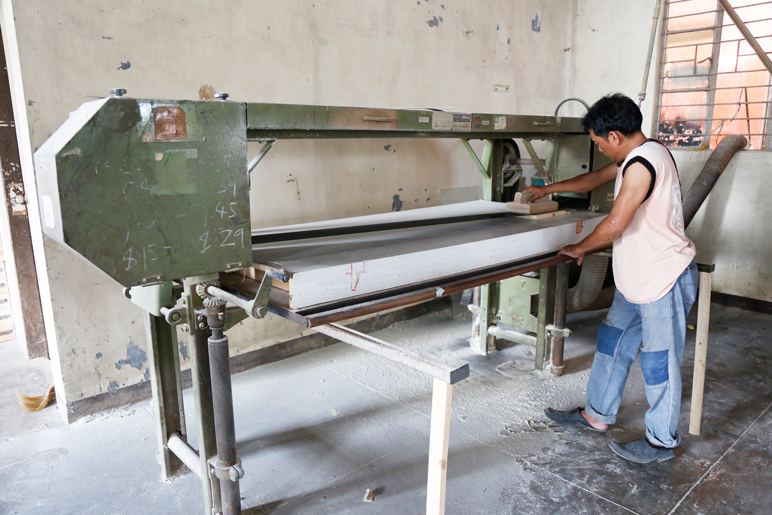
One of the most common sources that they recycle are wooden crates, which are often used in protecting and shipping goods. Rei and her team would recycle these by buying from sources at nearby piers. These wooden crates are then converted into boxes or souvenirs.
“We are not just helping the local economy, we are also helping the environment by repurposing or recycling these kinds of materials,” said Rei.
Aside from the theoretical learnings, however, Rei stressed the importance of showing concern to workers, products, and clients.
“No business would succeed without showing concern to your workers, products, and clients. These three should always be considered for a business to thrive in the market,” she said.
She emphasized the importance of treating workers as partners as they are crucial in delivering the products expected by the clients.
Until today, Reynalyn continues to search for partners. “We prefer to work with displaced carpenters have no access to market,” she said. She added that BalaiKamay is a great platform to collaborate with carpenters who passionate about their work.
Rei also work with persons with disability (PWDs) in creating their items. She hopes to be able to help more PWDs once they have the chance to expand the business.
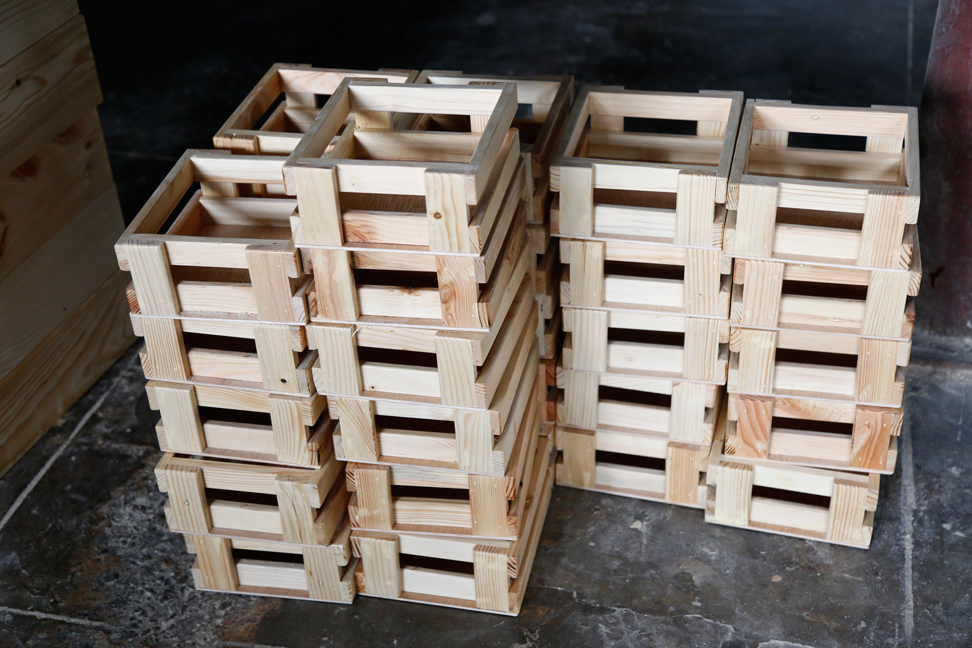
Through the Shared Service Facilities (SSF) program of DTI, BalaiKamay has utilized one SSF in Markina and the other in Cardona, Rizal which enabled its carpenters to produce 1,000 – 2,000 pieces of quality souvenir boxes, which is almost impossible to meet if they would work manually.
Rei shared that the SSF program significantly helped her business catch up with the increasing demand.
No physical stores yet, she said, but her enterprise is able to sell through consignment agreements with stores.
DTI has been constantly assisting her through seminars and trainings. She was also part of the Kapatid Mentor ME (KMME) Program, where she understood target market better and improve the company’s value proposition.
“It also gave us a chance to improve since our products were critiqued by experts,” Rei shared. DTI also helped BalaiKamay in widening its network and getting more clients, she added.
“Starting a business is really difficult. From a scale of 1 to 10, it would probably be 11,” Rei said.
She added, “But then, anything is possible and the hardships would all be worth it.”
Rei also wants to advocate local craftsmanship by providing a venue for learning among local carpenters.
“I envision our business to be a home for learning, too,” she said, hoping to provide a platform to showcase local artistry.




